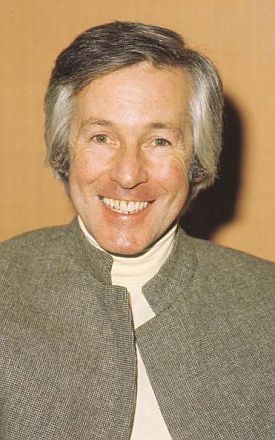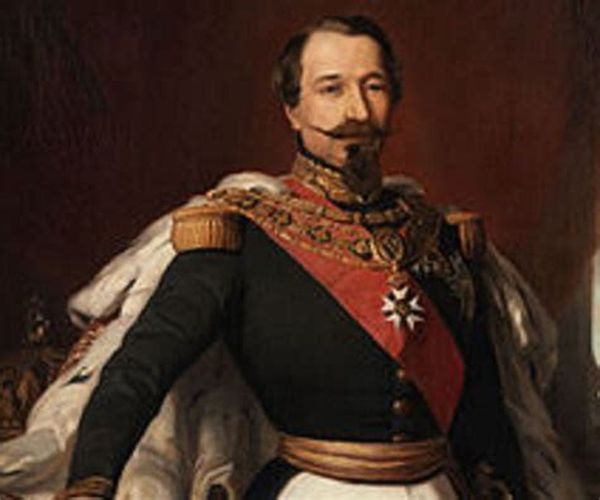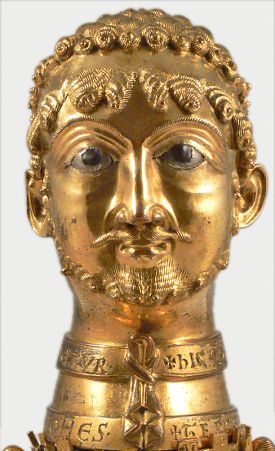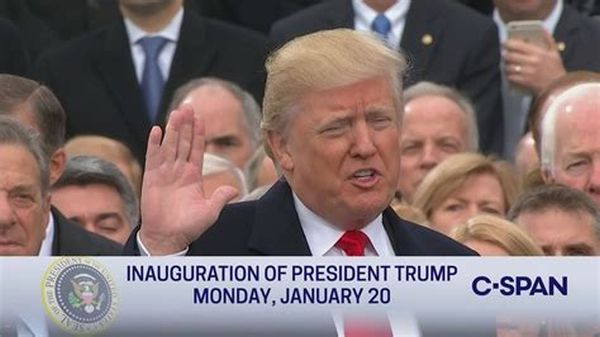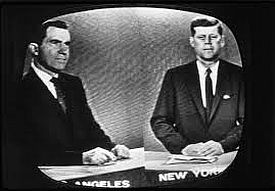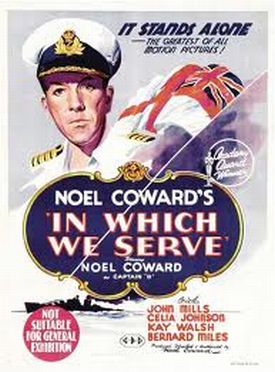House of Cads
From The New Criterion“Dandy Kim” in the 1970s
On the day after the Indiana primary confirmed that Donald Trump would be the Republican nominee for president, Kathleen Parker of The Washington Post was looking elsewhere — back a couple of days to an event that had happened during Ted Cruz’s final, desperate attempt to seize a chance at the nomination for himself. Out of that desperation, Mr Cruz had announced that, if nominated, he would choose Carly Fiorina as his vice-presidential running mate. Accordingly, Ms Fiorina was introducing the Cruz family at an event in Lafayette, Indiana when, as they were entering the stage behind her, she briefly fell off it. From the video, it’s pretty clear that the candidate himself didn’t see this happen, though his wife did, and helped the would-be veep, who was unharmed, back up onto the platform in time to give her husband a hug when he arrived at the microphone. For a brief moment you can see Mr Cruz glancing to his right to see Heidi pulling Carly back up, though he does not otherwise register any reaction to her fall. For Ms Parker, that one glance was enough.
One second, you’re a candidate. The next, you’re a cad. Whatever Cruz has wanted voters to think about him — the qualities and character that can’t be gleaned from a résumé — he lost control of the narrative. His reflex in a crisis moment wasn’t to help but to continue his march along the road to selfdom. But she was fine , some will object. She may have signaled to Cruz that she was okay and that he should continue. It doesn’t matter. When a lady falls, a gentleman helps her up. Period. It was a rare opportunity for Cruz to shed his image as a reptilian barfly and trade his mom-jeans for Lycra tights and a cape. But, no. In a Titanic fail, he paddled away as his female crewmate foundered. Some may argue that chivalry is dead. Sadly so. Good men have been slapped too many times for paying a compliment or holding a door. Still, we want our presidents and their spouses to be ladies and gentlemen. And, for most women, equality was never meant to justify leaving them to fend for themselves — or for men to be treated as universally suspect.
Try to think of the last time you heard or read the word “cad” used unironically. Not easy. I can’t imagine that any more than a tiny fraction of the Post’s readers under 60 — if there are any — are familiar with the word at all. Even in the UK, where memories of the old honor culture are a bit stronger, a recent obituary in The Daily Telegraph of one Michael, “Dandy Kim,” Caborn-Waterfield, a man who would seem to have fit the old definition of “cad” perfectly, describes him, rather, as a “gentleman adventurer” — itself a pretty obscure usage by now, I would have thought. But of course that may itself have been an instance of the gentlemanly rule — de mortuis nil nisi bonum — if you assume that “adventurer” is at least more bonus than “cad.”
If it takes a chivalric revival for the columnist to signal her own virtue and so to work off a by-now wholly redundant political grudge then so be it. I’m all in favor of it — the revival, not the grudge — but I couldn’t help noticing the irony of the publication date. To write, on the day that Donald Trump appeared to have clinched the nomination, that “we want our presidents and their spouses to be ladies and gentlemen,” would seem, if anything would, to risk having one’s punditry license revoked. Of course, Mr Trump had been and still is being called many worse things than ungentlemanly, but he himself, never shy about parading what he regards as his own admirable qualities, might be expected to gag on any claim to being numbered among the ever-dwindling band of the country’s gentlefolk. Nor does it seem probable that he would want to if he could — or that his supporters would want him to be.
Much was made just before the time of his Indiana victory of a caller to the Rush Limbaugh Show who, in explaining his preference for Mr Trump over Mr Cruz, said that he thought the latter to be altogether too gentlemanly and compared him to the notoriously gentlemanly Bush family. He didn’t mean it as a compliment. “It’s not really about, ‘Well, you know, people are being fooled that he’s not really conservative’,” said Sean in Philadelphia. “It’s not. I know he’s not a conservative. The fact is, to put it simply, Trump will fight. Not only will he fight, he’ll fight dirty, and the thing is we gotta get that. We have to have someone that’s gonna fight in the mud, ‘cause that’s where our opponents are.” Do you get the impression, as I do, that for a lot of people a vote for either Trump or Cruz has been a vote against precisely that gentlemanly Republican tradition represented by Jeb Bush, whose candidacy went nowhere?
I don’t, by the way, think that Sean in Philadelphia is quite right about the Republicans’ failure to fight during the last eight years (or to fight back during the previous eight), but you’ve got to admit that he’s got a point about where the fight is likely henceforth to take place. I hope Kathleen Parker doesn’t think it frightfully ungallant on my part if I point out, in agreement with Sean, that if Donald Trump is no gentleman, Hillary Clinton is nobody’s idea of a lady. I forbear to mention the obvious about her spouse. And, like her prospective opponent, she is much less likely to want to claim the distinction than to think it would be an insult to her progressive bona fides. She’s exactly the woman a lot of men can imagine slapping them “for paying a compliment or holding a door,” to use Ms Parker’s words. And yet, from the lofty vantage point of The Washington Post’s op ed page, this Southern belle (Ms Parker, not Mrs Clinton) is somehow able to dream that the election will be decided by people who want their presidents and their spouses to be ladies and gentlemen — or gentlemen and ladies, as the case may be.
Disliking Mr Trump as I do, I wish this were so at least as fervently as Kathleen Parker does. But I can’t let the wish blind me to the fact that it is not so. For the last three months, I have been writing in this space about what has happened to American politics as a result of our abandonment, thirty or forty years ago, of the honor culture which — as perhaps some people are beginning to realize — was built in to the Founders’ assumptions about our democratic and constitutional institutions and without which those institutions may very well cease to function as they should — or at all. Indeed, insofar as the impending nominations of Mr Trump and Mrs Clinton as their parties’ candidates for the presidency are symptoms of such a breakdown, this is already happening. Both are disliked (to put it no more strongly) by more people than admire or like them, and yet their march to the nomination has been unstoppable. There are technical reasons for this, particularly in Mrs Clinton’s case, but it cannot be denied that both candidates are expressions of the popular, democratic will among the most politically active Americans in the Year of Our Lord 2016.
Yet, somehow, it occurs to hardly anyone that we should see in this unlikely and ungentlemanly pair a reflection of our increasingly unlovely selves, addicted as we are to the vulgar celebrity culture out of which they have both emerged. E.J. Dionne of The Washington Post has written of “the stunning success of Donald Trump’s crossover act” as “the demolition of the line between celebrity and political achievement,” but, in this, Mr Trump is only following the example of his prospective opponent, who emerged as a political figure in her own right out of her role as the wronged wife in the great political soap opera of the 1990s. That is the grain of truth which lay behind Mr Trump’s outrageous claim that if she were not a woman she would not be winning so much as five per cent of the vote.
Celebrity, as I may have mentioned before, is what rushes in to fill the cultural vacuum when honor is gone. Now we treat even the once most honored of our public men of the past like celebrities. And, like all celebrities, they exist at the media’s pleasure. So when the media and other politically correct gatekeepers of American history find that the great ones of the past have been guilty of such peculiarly post-1960s sins as racism, sexism, etc. — which they could hardly have foreseen as becoming sins at all — they may be expected to drop off their pedestals in the ensuing cultural earthquake. Fortunately for Alexander Hamilton, someone has thought to write a fabulously successful rap musical about him which portrays him as having risen out of the ranks of victimhood to his eminence among the Founders, so his presence on the ten dollar bill is said to have been preserved.
Instead, Andrew Jackson, slave-owner, Indian killer — and, we might add, as a frequent duelist a champion of the very old honor culture — had to give up his place on the twenty to Harriet Tubman, having already been purged from the Pantheon of Democratic party heroes and heroines by that party’s numerous exponents of political correctness. As it happens, several writers (see, for example, here, here, here and here) have found in Mr Trump himself a rather Jacksonian figure — if not in terms of achievement at least in the sense that his appeal is to the same segment of the population that the General appealed to, though it is proportionally smaller now than it was in Jackson’s day. This is the segment made up of mostly less well-off but independent minded, mainly rural and small town voters with a deep suspicion of urban, social and political elites, who do not think of Adolf Hitler, or even Charles Lindbergh, whenever someone says “America First.” It’s almost enough to make you think that we have had the same two parties in America under different names since the beginning — rus et urbe, Paine vs. Burke, Jeffersonians vs. Hamiltonians, South and West vs. North and East, free silver vs. gold, the Mandarin élite vs. “the rabble.” That word, by the way, is another one which (perhaps like “cad”) James Traub of The New York Times thinks is due for a revival in the age of Trump. At least it is if it helps to keep the rabble down and out of power.
If the media have been slow to recognize this revival of an ancient division — and an ancient snobbery — among Americans, it must have something to do with a lingering conceit, not unlike that of Kathleen Parker, of their own honor culture, which they have yet to realize is as long gone as everyone else’s. Glenn Kessler, famed “fact-checker” of The Washington Post, is another example. He takes his fellow journalists to task for not more frequently confronting Mr Trump with those “Four-Pinocchio whoppers” that he, Mr Kessler, has so helpfully pointed out for them. I know it’s hard to believe, but this laborer in the vineyard of “fact” must think that, if only more authoritative journalists like himself joined the candidates’ own chorusing of “liar!” against each other, people would believe them. He must suppose that people regard “fact checking” journalists the way they regard themselves: as the disinterested final arbiters of what is truth and what is falsehood. He should apply himself to checking that fact. I think he might find it necessary to award himself at least a couple of Pinocchios.
At any rate, it’s hard to deny the evidence that substantial numbers of people prefer to believe Mr Trump rather than his critics, whether the latter are in the media or in the ranks of his now fallen opponents. A truly independent-minded person might wonder if there could be a reason for that, apart from mere stupidity or perversity. But then again, I suppose it’s not really a surprise to find journalists obsessed with their own political virtue when so many principled Republicans and conservatives have rushed to embrace the cause of #NeverTrump. It must seem to the Trumpists that such people have cast their lot in with the politically correct, for whom purity of motive is the only thing that matters in politics. It might also occur to them that these bitter-enders are emulating the “Not in My Name” war protesters of a decade ago, people who think that politics is an excuse for proclaiming their own high principles — virtue-signaling, as it has lately been called — rather than coming to terms with democratic realities.
I don’t say that they are right about this, but isn’t there something just the tiniest bit Pharisaical about the Never Trumps? “God, I thank thee that I am not as other men are.” It all reminds me of what the late Irving Kristol used to say about the sort of pure conservatism — now they call it libertarianism — that likes to bang on about Our Enemy, the State. “Guess what?” said Irving. “The State doesn’t care.” Libertarians have grown used to their own irrelevance — and, I fancy, rather proud of it — since Albert Jay Nock’s day. I suppose high-principled conservatives might as well join them. Indeed, they already have insofar as they have come to believe that there is political virtue simply in being irrelevant.
Sometimes, of course, there is, but I don’t think we are yet in such a bad way as that, whatever the media’s apocalyptic imaginings about Trumpism would have you believe. The fourth estate are themselves so solidly planted in the Mandarin class that they can no longer imagine what it is like to be outside it, looking in. And that failure of imagination on the part of an entrenched elite is why the media’s endless animadversions against Donald Trump have been counterproductive. I share many of their opinions of Mr Trump, but I find myself wondering more and more often if he isn’t going to be hated and ridiculed and anathematized and boycotted right into the White House. The more loudly the media insist on their prerogative to tell the rabble who is and is not fit to lead them, the more firmly do the rabble insist that ‘taint so — which they can only do by voting for the candidate monstered by the media, irrespective of whether he is an actual monster or not. On that subject, I prefer to offer no opinion, though I would just note that honor, in the absence of an honor culture to support it, ends in mere quixotism.
@
Discover more from James Bowman
Subscribe to get the latest posts to your email.

